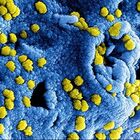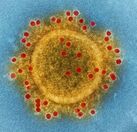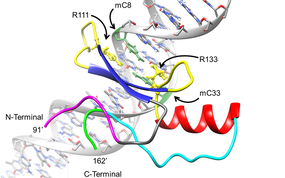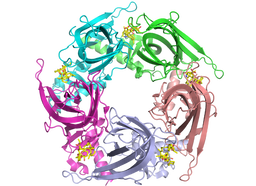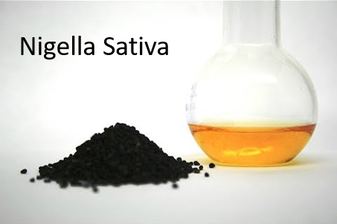Summer 2024 Internship Projects: IT or Computational Science tracks
IT projects will focus on using Python, Java or other programming languages for interesting applications such as in cryptography or in global data trend evaluations. Computational science projects will utilize molecular modeling and drug design methods for biological or medicinal applications (cancer and other diseases). Sample project descriptions are provided in this page for previous years. Students interested in interning with us are encouraged to take at least one of the computational science certificate courses that we offer.
- Application Process
- Students complete the application form (be ready to submit PDF copies of one-page letter of interest, one-page resume and unofficial transcript)
- Students will be sent an optional diversity survey (Check your email that you used in the application form)
- Students selected by QSRI admissions committee will be invited for a written interview May 1. Please check your mailbox frequently.
- Final decisions will be made by each professor by May 10 and students will be notified on May 15.
- Accepted students are asked to register by May 22 to secure their seat.
- Eligibility: All undergraduate students and high school students (rising 10th grade and above)
- Deadline to Apply: April 15, 2024
- Internship Dates: June 15 -July 31
- Please be advised that the dates may vary slightly based on the project and some projects may require prior completion of a short online training course.
- Registration Fee: $60 (Waived for low income students.
- Tuition: $500 (Stipends up to $2500 for undergraduates and 100% Scholarships are available, waived for undergraduate students)
- Students should expect to work 3-5 hours per day Monday-Friday (professors set their own schedule/frequency of their Zoom meetings)
All students with family income at or below the federal poverty level in their 2021 tax return will be provided with 100% scholarship to cover the tuition and the registration fee. Income and/or merit-based stipends may be available depending on the funds. Acceptance criteria is not based on income. Our admissions committee will make decisions based on merit and diversity and send recommendations to each professor. Professors will choose their students from the recommended list of students.
Note: Each year, we receive hundreds of applications, and unfortunately, we have to turn down many smart and hardworking students. Other local opportunities for students include:
- ASSIP Young Researchers Program at George Mason University - (Tuition: $2000)
- Gifted & Talented Program at Johns Hopkins University -(Tuition: ~$4500 for 3 weeks)
- Jefferson Lab High School Honors Program - Nuclear Physics research located in Newport News, VA
- Naval Research Laboratory Student Volunteers Program - Various locations
Past Research Internship Opportunities
Binding affinity simulations of PLK receptors and small molecules
|
Students will learn about physiological pathways that polo-like kinases are involved in the human body and their relation to cancer proliferation. Concurrently, they will use molecular mechanics-based or machine learning-based methods to determine the binding affinity of select small molecules to PLK1-PLK3 and PLK5 receptors. |
Identification of novel natural products for PLK1 inhibition
Molecular dynamics simulations of PLK-small receptor binding
Designing New Cryptosystems: Implementation in Python Programming Language
|
Cryptography is the science of secure communication; how can Alice send a private message to Bob and at the same time prevent an adversary, Oscar, from knowing the content of the message?
In the past, cryptography was mainly used for military applications. Julius Caesar used a simple shift cipher to communicate with his generals on the battlefield. Nowadays, cryptography provides most of the methods for secure online communications that require privacy and security such as emails, bank transactions, voting systems, and Bitcoins. In this project, students will first learn about several classical cryptosystems, including the Substitution, the Permutation, the Rail-fence, and the RSA ciphers, then they will design new cryptosystems, implement them using Python, investigate their strengths and weakness, and present findings. |
Exploring the ADMET properties of top-hit drug candidates for cancer

Students will be trained on how to use several different computational tools to determine the properties of our newly identified set of small molecules. One hundred potentially promising small molecules have been identified through screening several millions of molecules. Students will focus on deciphering their properties including absorption, water solubility, metabolism and toxicity.
New Spread or Increased Testing? Analysis of Coronavirus Data Using C++
|
What is the reason behind the increase in COVID-19 cases? Could it be the increased access to testing or is it the continuing spread, perhaps a second wave? Can we answer this important question based on REAL DATA?
In this project, students will be trained on the basics of C++ (if statements, while loops, and functions) while working with real coronavirus data from US, UK, and Canada. This is an excellent opportunity to learn C++ programming and to deal with large datasets that have a real life, and timely, application. No prior programming experience is required to apply for this internship. |
Computational Investigation of Rare Monogenic Diseases
|
Related Fields: Chemistry/Medicine/Biology/Biochemistry/Computer Science
There are about 10,000 known rare genetic diseases without a cure (for nearly all of them). This project will investigate DNA mutations related to specific diseases and their harmful effects at the protein level. Through this hands-on research experience, students will learn about genetics, rare diseases, details of protein structure and intermolecular interactions, thermodynamics, computer simulation techniques. In addition to collecting data, they will be given a chance to contribute to a manuscript to be published in a peer-reviewed journal. Students are required to complete introductory level online Molecular Modeling modules (taught by Quest professors) prior to starting the project. |
Literature Review of Synthesis and Characterization of Nicotinic Ligands
|
Related Fields: Chemistry/Medicine/Biology/Biochemistry:
Synthesis and Characterization of Nicotinic Ligands. Available pharmacotherapies for smoking addiction are not adequate in efficacy. During the summer, the synthesis of new analogues of compounds capable of binding to and modulate the function of receptors associated with nicotine addiction in the central and peripheral nervous system will be investigated. Students will synthesize small molecules that act as nicotinic acetylcholine receptor ligands and then characterize the newly made compounds through a variety of methods including NMR and mass spectroscopy. |
Designing & Testing of Board Games for Chemistry Education
|
Related Fields Chemistry/Medicine/Biology/Biochem/Computer Science:
Designing and testing of board games for chemistry education. Students are required to complete online modules about basics of game design prior to starting the project. in the end, each intern will be trained and expected to design a professional game throughout the internship. Steps include initial training, mod a game, game development & prototyping. In addition, students will collect and analyze data for potential of their games in learning as well as player experience including enjoyment and motivation. In the end, there will be a game fair showcasing the games developed by interns. We are hoping to work with DC chapter of ACS to coordinate the event. Several other opportunities include publishing their games and designing digital games (android, mac and windows). |
Extraction and Computational/Spectroscopic Investigation of Medicinal Seed Oils
|
Related Fields: Chemistry/Biochemistry/Medicine/Computer Science:
Students will extract oil from several different medicinal seeds including nigella sativa using our state-of-the-art green extraction methods. The extracted oils will then be investigated through UltraViolet-Visible spectroscopy. Students will systematically search the literature for the content of the oils and compare their data with NIST data (if available). In addition, students will perform quantum mechanical simulations to decipher the structures and IR spectra of selected active chemicals expected to be found in medicinal oils. Students are required to complete an online Molecular Modeling module prior to start working on this project. |
Question?
Feel free to contact the us at info@questsri.org.

